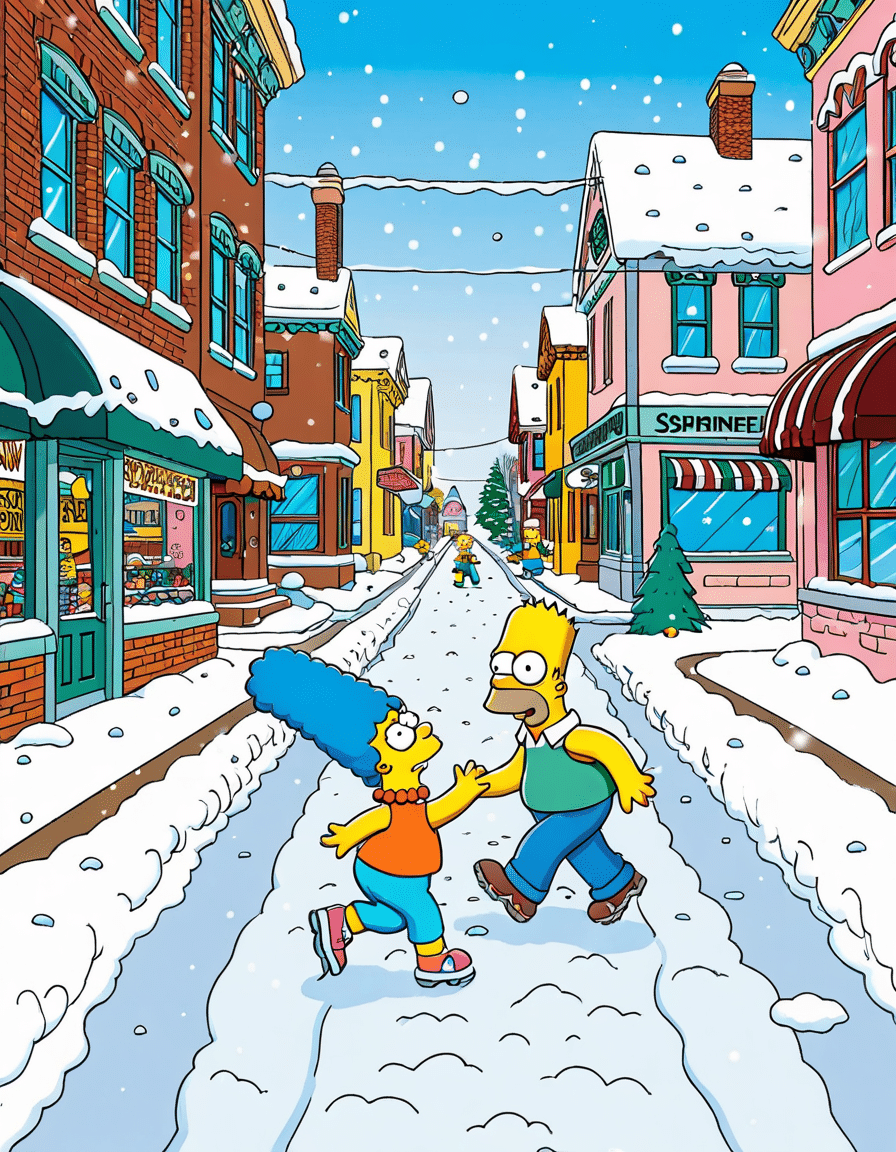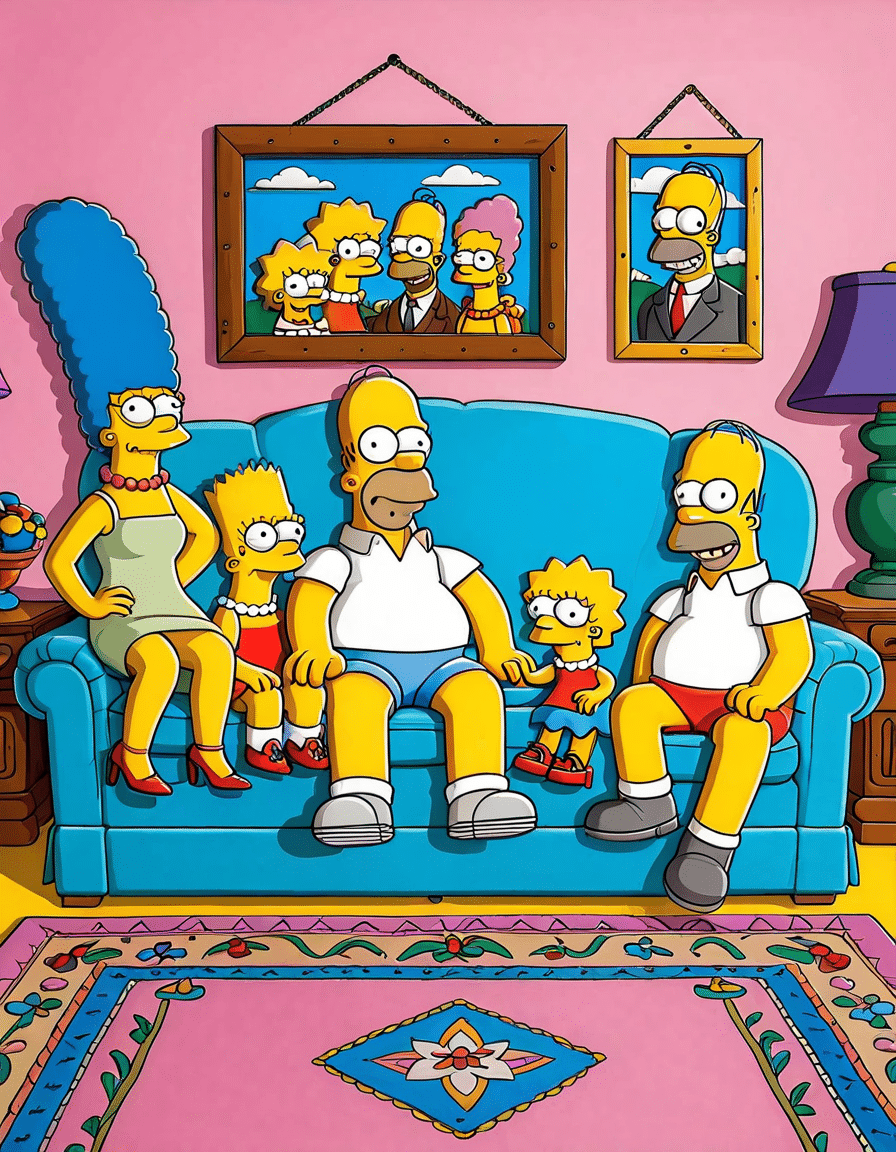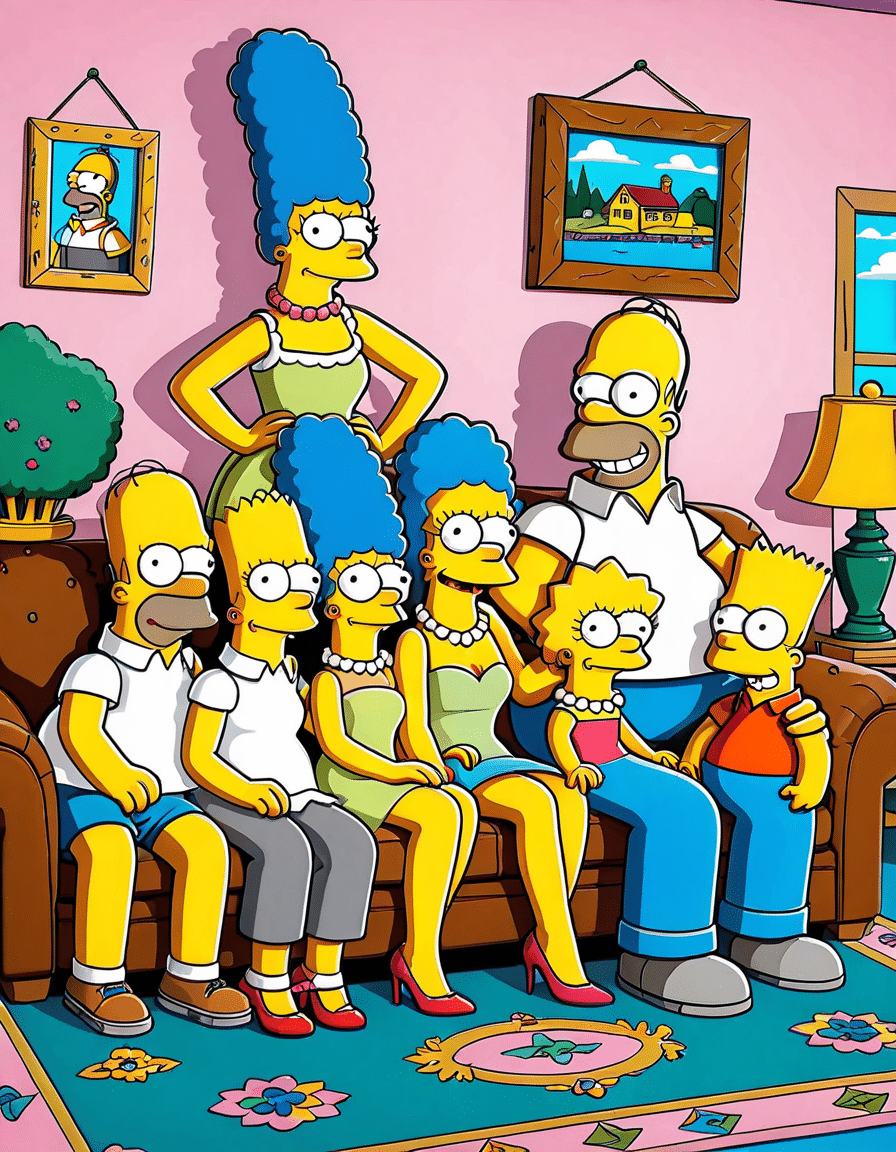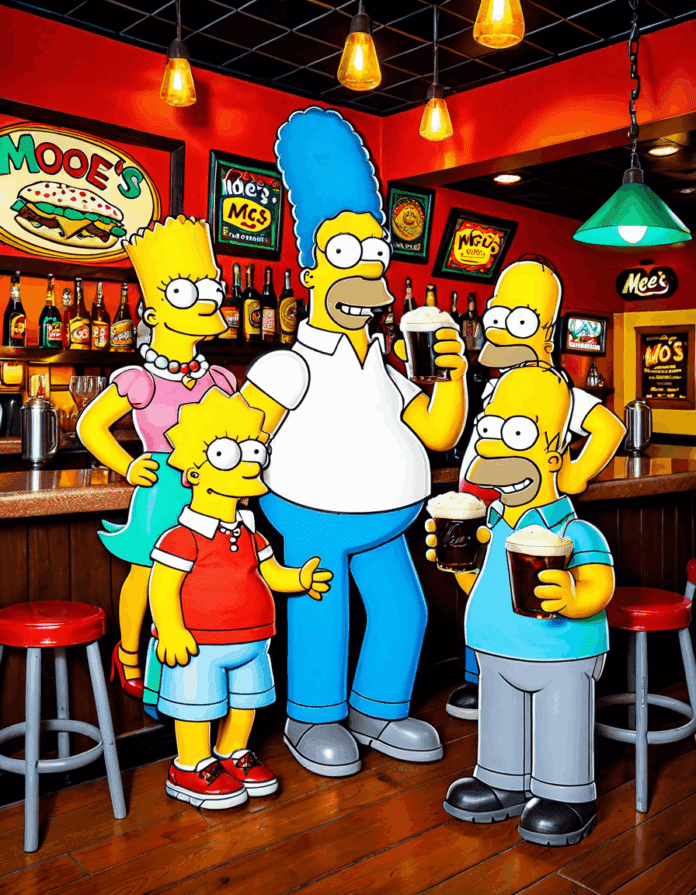The Simpsons stands as one of the most influential animated series of all time, reshaping the landscape of television with its satirical take on American life. Since its debut in 1989, The Simpsons has captivated audiences and evolved in ways that have left an indelible mark not just on animation, but also on pop culture itself. In examining its impact, we can identify pivotal moments that defined the series and charted a new course for animated content. Here, we’ll delve into seven iconic moments from The Simpsons that not only entertained viewers but also influenced the trajectory of animation as we know it.

7 Iconic Moments from The Simpsons That Shaped Animation
1. The First Episode: “Simpsons Roasting on an Open Fire” (1989)
The Simpsons kicked off with a Christmas special that brilliantly blended humor and heartfelt themes. “Simpsons Roasting on an Open Fire” introduced us to the lovable yet dysfunctional Simpson family, setting the tone for countless episodes to come. The show’s deft ability to tackle complex family dynamics hinted at a new era for primetime animated shows, proving that this genre could attract an adult audience who craved storytelling beyond slapstick comedy.
With its relatable themes and unforgettable characters, this episode painted a vivid picture of American life and turned The Simpsons into an immediate cultural phenomenon, paving the way for predecessors like Family Guy and South Park. Animation wasn’t just for kids anymore; it was a medium ripe for satire and social commentary.
2. The “Do It For Her” Moment (Season 3, Episode 9: “Lisa’s Substitute”)
Moving forward, one moment that stands out is Homer’s touching dedication to Lisa in “Lisa’s Substitute.” When Homer scrawls Lisa’s name on his desk at work, it becomes a powerful symbol of his love and commitment. This heartfelt scene resonated strongly with audiences, showcasing the emotional depth animation could achieve.
It wasn’t just a funny cartoon anymore; it was a poignant portrayal of parental devotion. This moment influenced future animated series like Bob’s Burgers, which embodies character-driven storytelling that connects with viewers on an emotional level.
3. The “Monorail” Song (Season 4, Episode 12: “Marge vs. the Monorail”)
Then there’s the iconic “Monorail” episode, a classic that not only brought hilarity to the small screen but also highlighted The Simpsons’ knack for catchy musical numbers. With a plot revolving around Marge trying to stop an absurd monorail project initiated by the “cool” new guy, Lyle Lanley, the episode became a game changer for animated series aiming for musical flair.
Its catchy tune and whimsical absurdity inspired countless musical episodes in animated shows like Phineas and Ferb, establishing a trend that persisted well into the modern age of animation. Who would’ve thought that a singing monorail conductor could lead to an entire genre?
4. The “Treehouse of Horror” Specials
Kicking off in 1990, The Simpsons’ “Treehouse of Horror” specials revolutionized how animated shows explored different genres. Each Halloween-themed anthology episode combined horror and comedy, featuring parodies of iconic horror films and Sci-Fi classics. This innovative storytelling format inspired numerous animated series, such as Adventure Time, which often embraced surreal and episodic storytelling.
The clever references and playful nods allowed The Simpsons to captivate audiences while celebrating genre filmmaking, showcasing how animation could push boundaries. The formula for these specials proved so successful that it became a staple in pop culture, ensuring that Halloween would never be the same again for animated television.
5. The “Steamed Hams” Scene (Season 7, Episode 21: “22 Short Films About Springfield”)
Who could forget the “Steamed Hams” scene that became an internet sensation? From the mishaps of Principal Skinner to the quotable lines (“It’s just a regional dialect!”), this short sequence turned into a viral meme, illustrating The Simpsons’ gift for humor that endures in modern culture. Its awkwardness and absurdity highlight the show’s mastery of situational comedy, transforming what was once a simple dinner into meme-worthy content.
This moment underscores how The Simpsons not only influenced animation but also sparked trends in digital culture. The humor found in this seemingly mundane interaction resonates with fans across generations, showing just how timeless and relatable the characters are.
6. The “Bart Gets an F” Episode (Season 2, Episode 1)
In “Bart Gets an F,” viewers witness Bart Simpson struggling to pass a history test, revealing the challenges of childhood education. This episode tackled serious themes surrounding failure, growth, and perseverance, leaving a lasting impact on audiences. It presented a realistic portrayal of a young boy trying to do his best, shifting perceptions about how animated series could handle critical educational topics.
This tone resonated in later animated shows like Arthur, which drew upon similar themes of ethical dilemmas and personal growth. The ability to teach while entertaining opened the floodgates for educational content disguised as fun, extending the influence of The Simpsons beyond just chuckles.
7. Lisa’s Feminist Awakening (Season 1, Episode 11: “The Crepes of Wrath”)
In the earlier days, Lisa Simpson emerged as a feminist icon, particularly in episodes like “The Crepes of Wrath.” Her struggles for equality, autonomy, and justice set a precedent for female characters in animations. Lisa’s assertive personality paved the way for the portrayal of strong female leads in shows like Steven Universe, where themes of social justice and complex character arcs became prevalent.
As viewers followed Lisa’s feminist journey, they began to see the potential for animated series to address contemporary issues head-on. The Simpsons not only gave voice to underrepresented stories in animation, but it helped to change the narrative around what could be depicted in cartoons.

The Simpsons: Legacy Beyond Animation
The influence of The Simpsons has transcended traditional entertainment, turning it into a cultural touchstone that reflects and critiques societal norms. Its signature approach to humor, combined with relatable stories and sharp social commentary, laid the groundwork for the evolution of animated programming. After all, who can deny the brilliance behind a show that tackled everything from The peanut to contemporary political issues?
Shows that followed borrowed from The Simpsons’ formula, experimenting with character depth, observational humor, and diverse representation. To put it simply, The Simpsons serves as a reminder of the artistry involved in crafting stories that resonate on multiple levels.
As we celebrate the moments that shaped animation, it’s crucial to recognize how The Simpsons not only entertained millions but also inspired generations of creators. The innovation found within each iconic scene ensures its legacy in both animation history and pop culture remains intact. Whether it’s an absurd dinner with steamed hams, an emotional father-daughter moment, or an unforgettable Halloween special, The Simpsons continues to inspire the vibrant and innovative landscape we see in animation today. Through every laugh and tear, this beloved series has left a lasting imprint that will surely endure for years to come.
The Simpsons: Iconic Moments That Shaped Animation History
Groundbreaking Humor and Timeless Appeal
Did you know that The Simpsons was the first prime-time animated series to win an Emmy Award for Outstanding Comedy Series? This groundbreaking achievement in the late 1990s proved that animated shows could deliver sharp, satirical content, rivalling live-action comedies. The series has pushed boundaries, leading to countless parodies of pop culture icons. Speaking of icons, even superstars like Beyoncé have made guest appearances, providing a fun twist to the already vibrant cast of characters. You can catch Beyoncé and other famous faces delivering memorable one-liners and unforgettable moments in various episodes. The show’s knack for coupling humor with critique laid the foundation for similar animated series that followed.
Pops of Pop Culture
Transitioning from animated to real-life influence, one of The Simpsons most memorable moments saw controversial figures addressing pressing social issues—like the time Homer’s “Mmm… donuts” became a pop culture catchphrase. This comedic phrase reached unexpected heights, with even Kanye springing into the limelight discussing it during interviews. Who would’ve thought a simple line could lead to such dialogue and laughter? The series also features clever nods to literature, as seen in their take on classics like Charlotte’s Web. These clever adaptations showcase the show’s unique ability to remix various cultural touchstones, making them relatable even decades later.
Enduring Legacy of Animated Innovation
The Simpsons isn’t just entertaining; it’s a cultural institution that reflects societal changes and challenges. One episode that stands out is the parody of the Swedish film The Girl With The Dragon tattoo, showcasing the show’s ability to mesh genres and entertain audiences with a nod to more serious topics. This kind of savvy storytelling is what keeps The Simpsons relevant and loved by fans of all ages. It’s fascinating how the series has paved the way for innovations, similar to how advances in areas like AI speaker coaching have transformed public speaking today. The art of animation evolves with each episode, influencing not just fans but budding creators who look to The Simpsons for inspiration in their artistic journeys.
By weaving these iconic moments with humor, The Simpsons continues not just to entertain but also to leave a lasting impression on animation history. As fans eagerly continue to tune in, one thing’s for sure, The Simpsons won’t be going anywhere soon!




